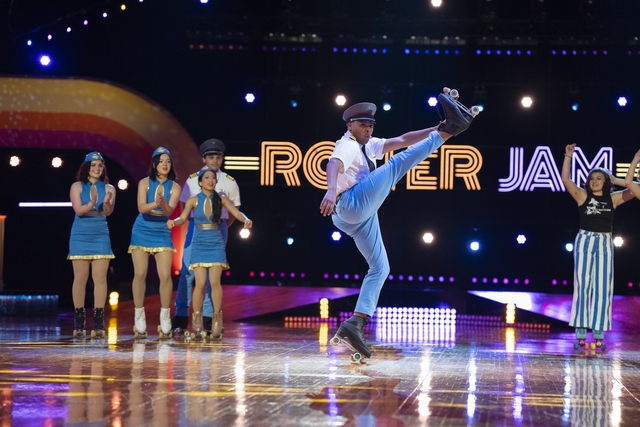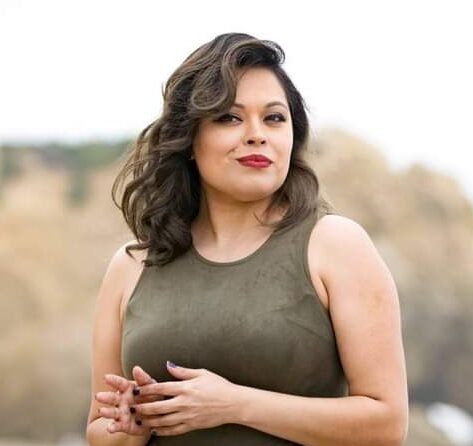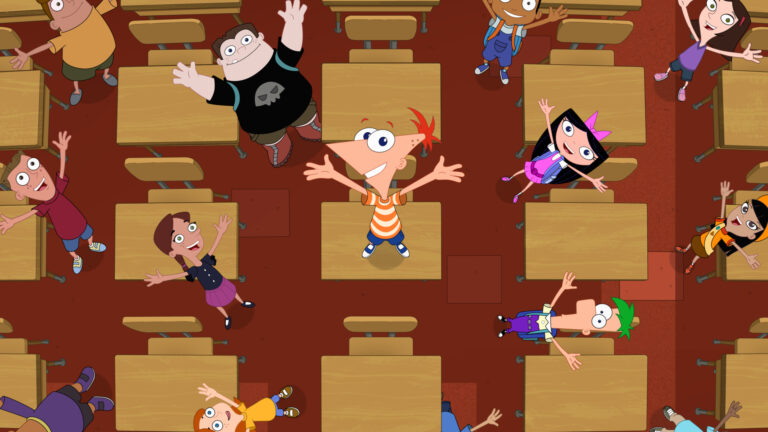Jordin Sparks, Johnny Weir, and Terrell Ferguson – the host and judges of the first-ever nationwide televised roller-dancing competition – sat down to discuss their new show, Roller Jam.
A Conversation with the Judges and Host of Roller Jam
Grammy-nominated, multi-platinum singer/songwriter and actress Jordin Sparks hosts this first-ever nationwide roller dancing competition on television. Two-time U.S. Olympian and national figure skating champion Johnny Weir and roller-skating legend Terrell Ferguson serve as judges. furthermore, in each episode, skate teams create all-new routines to perform for Johnny, Terrell, and a celebrity guest judge in front of a live audience. Only one team will be chosen in the end as the ultimate roller dancing team in the country.
Music is more than a soundtrack
Music fuels Roller Jam, injecting soul and emotion into every spin and leap. It’s more than just a soundtrack; it’s the language of the skaters, transforming athleticism into stories of passion and grace.
Roller Jam also harnesses music’s power to transport viewers through time. Each episode becomes a dynamic time capsule, immersing the audience in the music and culture of a specific decade. They explored the crucial role music plays in the competition, highlighting how different eras lend themselves to roller skating.
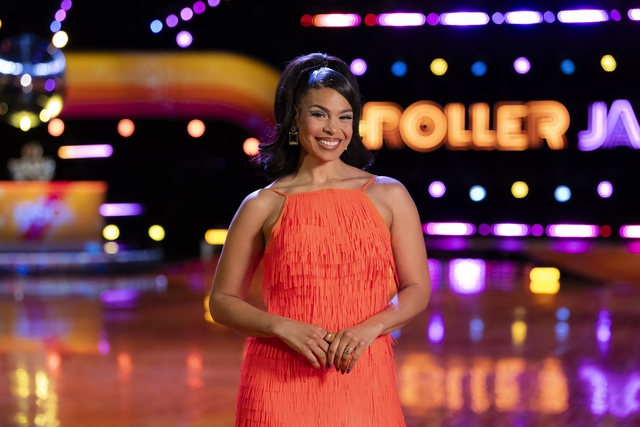
Jordin Sparks: Personally, my favorite era that we did was the 60s. I love the fashion. I love Motown music. I’ve loved it since I was little. I love the joy, the fun, and the happiness that exudes when you listen to Motown music. And it’s really good for group numbers as well, because there were so many group performers from that era. I don’t know if I can say there is a best era, but I feel like the best songs for anybody to either dance, sing, perform, or skate to are songs that really bring you joy and that you relate to.
Terrell Ferguson: Everyone knows I like the 80s. I’m an 80s guy because of Prince and Michael Jackson, but for skating performance skating, I would say the 70s because you’ve got the funk, disco, and even elements of early hip-hop and house music. So you cover like five different genres and eras with just the 70s.
Johnny Weir: I agree, the 70s. That music is how I think of roller skating with the disco ball and the clothes and the aesthetic and everything. So, the 70s definitely kind of gets my heart racing a little bit more than the other eras, but the 80s is still my favorite.
Evolution of Roller Skating
The judges also examined the evolution of roller skating itself, remarking on the sport’s increased athleticism and diversity. They stressed the importance of self-belief, following your heart, and embracing constructive criticism.
Terrell Ferguson: It’s interesting. When I was younger and more athletic, it was kind of looked down upon to be flipping and all that stuff. And now, with the different skating groups, they’re so athletic. It’s amazing! It’s evolved into such an athletic sport. They’re just so strong and agile. The athleticism of it is amazing and it’s going to be fun for everybody to watch. But don’t try any of those tricks at home because you’ll break your hip.

Johnny Weir: I’m so excited that we get to celebrate roller skating in this way on this level for the first time ever. However, the show celebrates so many different disciplines of roller skating, from the more artistic freestyle like figure skating version of roller skating to the breakdancing crews. I love that! I think being a diverse performer is always really important. I’d say to anybody competing in anything, the most important thing is to believe in yourself, listen to your heart, and, you know, really show your soul.
The supportive and encouraging atmosphere they’ve cultivated on set of Roller Jam
Sparks, Weir, and Ferguson also revealed the dynamics of working with guest judges and the challenges of staying impartial. They expressed admiration for the contestants and their impressive performances, admitting the difficulty of choosing favorites. The judges emphasize the supportive and encouraging atmosphere they’ve cultivated on set, where they want every contestant to feel welcome and cheered on
Johnny Weir: This show is all love. And everybody that came in as our guest immediately tucked into that supportive, loving place. I joke about Terrelle, but constructive criticism is super important, and I think everybody just felt that.
Jordin Sparks: It’s interesting because so many people have different takes. Some people are like, “I don’t even know how to judge this. I’m just going to go off of what I like.” Or some of the judges would be like, “Well, I skate all the time, so I’m going to go off of what I feel.” So it was—I don’t know if it changed the dynamic so much as it was more of what they said or the comments that they gave. But all of them were so much fun. And they were legends sitting amongst us. It was just so cool to be able to experience that as well.
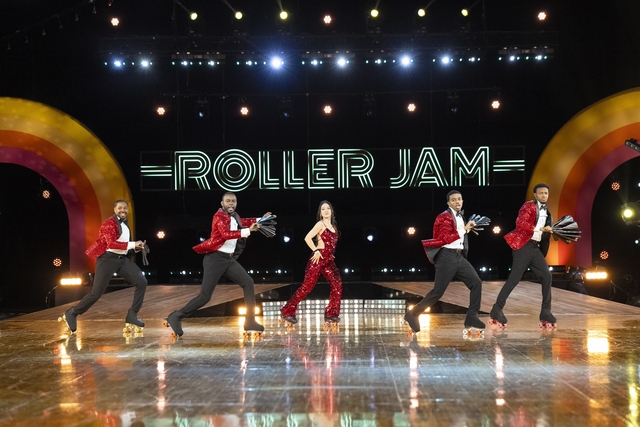
Terrell Ferguson: There are two ways to be unbiased, for me. It’s to know no one or to know everyone. And I literally know everyone. So it’s like picking your favorite kid. You’re not going to pick your favorite kid. So that allowed me to just go, “Well, I already know everybody, so I can’t be biased because I’m going to see all of you.” So I just literally, no matter what I saw, said what I’m seeing right now. I don’t care what I saw six months ago or one year ago. I’m going to say what are you doing now? How did you execute it? Did you do what you were trying to do? And that’s what I looked at. And that’s why there were a lot of surprises because it’s easy to say, “Oh, this group looked great in week one.” Well, did they look great in week three? Did you look great in week five? Because just because you look great once doesn’t mean you’re going to be great all the way through.
Johnny Weir: I think one of the best things that I was told when I started broadcasting figure skating is that you have to separate yourself from the world that grew you and step away from your personal relationships with the people that you’re commentating because your obligation now is to the audience. And while I didn’t know everybody, I knew that my job was to be loving and supportive of the people performing for us, that we were lucky enough to enjoy their talents. But my job was to be like the person sitting at home. I want to be supportive and inspire and do that whole thing.
Jordin Sparks: I got lucky because I wasn’t at the judges panel, so I was able to really be down there with the contestants, and I didn’t have favorites. I loved them all. I think it would be unfair to list a favorite, especially when you’re talking to them and you’re amongst them all the time. Like, I never wanted anybody to feel like, “Oh, well, she doesn’t like me anyway.” So I think for all of us, that’s something—we want them all to feel like they’re welcome here. We want them all to feel like we’re rooting for them. So, but I really enjoyed being able to be down there and hug them and be like, “It’s okay. Like, breathe. You got this. Like, it’s all right.” None of us had favorites.
Roller Jam premieres on Max on Thursday, October 10th, with new episodes dropping weekly. Don’t miss this exciting new series that celebrates the art of roller skating and the power of music to transport us through time.

